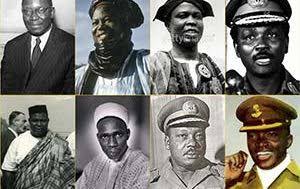By Jerome Mario Utomi
From the excitement elicited, the recent statement by Mr. Sonny Echono, Permanent Secretary, Ministry of Education, in Abuja is historic. He announced that the Federal Government had directed all primary and secondary schools across the country to immediately implement the teaching of history as a stand-alone subject from the next academic calendar.
It could be recalled that prior to this announcement, Nigerians with critical interests have, at different times and places, argued that allowing history in Nigerian Primary and secondary schools could be a possible escape from multi-faceted challenges bedeviling the country.
The usefulness of history in human existence cannot be overemphasized. History helps the youths take in vast amounts of information. It also helps to teach them how to write and communicate those ideas effectively. History exposes students to accept the fact that many problems have no clear-cut answers, while helping to cultivate flexibility and willingness to change their minds as they go about solving problems in whatever field they choose.
Next to assisting in knowledge about people, societies and information on how people and societies live and behave, history helps immensely in equipping citizens to be both good leaders and good followers that cannot be deceived. For without such knowledge, one may be extremely educated and at the same time be ill-informed or misinformed.
For instance, in the early thirties, many members of the Nazi party in Germany were extremely well educated. But no matter how educated they were, they were still trapped in a web of totalitarian propaganda that mobilized for evil purpose-war. They supported the Second World War simply because they were ill-equipped with history. They had no knowledge that war has never in the history of humanity solved any problem.
Again, according to the words of Lee Kuan Yew, a former Prime Minister of Singapore, great leadership knowledge is gained by probing the past events, that is history, and using the knowledge derived to tackle the present.
Today, our inability to investigate our past via history, to enable us correct our backward attitudes developed during the colonial era, now contributes to why we are not marching forward; but groping and stumbling, divided and confused.
Regardless of what others say, Nigerians, during the colonial days, developed a belief that sees public property as no man’s property. This belief was intended to fight colonialism but it continued after independence and brought about insensitiveness to government property, ineptitude, nepotism and neglect of duty.
In addition, our youths that will provide the next set of our leaders, have, for a very long time in the absence of history as a subject, yielded obedience to the power of social media; learning cultures that are un-African. This brought about a push in antisocial activities and adversely affects their education, promotes fake news, and appreciably encourage premarital sexual escapade.
No doubt, whenever the people are well informed, they can be trusted with their own government. This Federal Government’s decision will avail the youths opportunity to listen to the stories of those before them, study the actions of eminent men, see how they conducted themselves and discover the reasons for their victories or their defeats so that they can avoid the later and imitate the former. Such stories, from what human development experts are saying, can inspire the youth to action.
Also very important is that in the coming days, history will present to our youths a credible account of what transpired during the pre-colonial days. So many historical accounts coming from the western authors and world about pre-colonial Africa creates an impression that when the Colonial overlords arrived in Africa, the natives had to be taught everything.
That Africans knew nothing about writing or building; that we had no idea of what a nation, state or what political institution should look like. Message African youths are beginning to internalize.
But with the coming of history, such will definitely be erased as African historians and other scholars are in agreement that Europeans succeeded in Nigeria as a colonial power, not because they were more organized but because they met already organized political, socioeconomic institutions and kingdoms.









Comments are closed for this post.